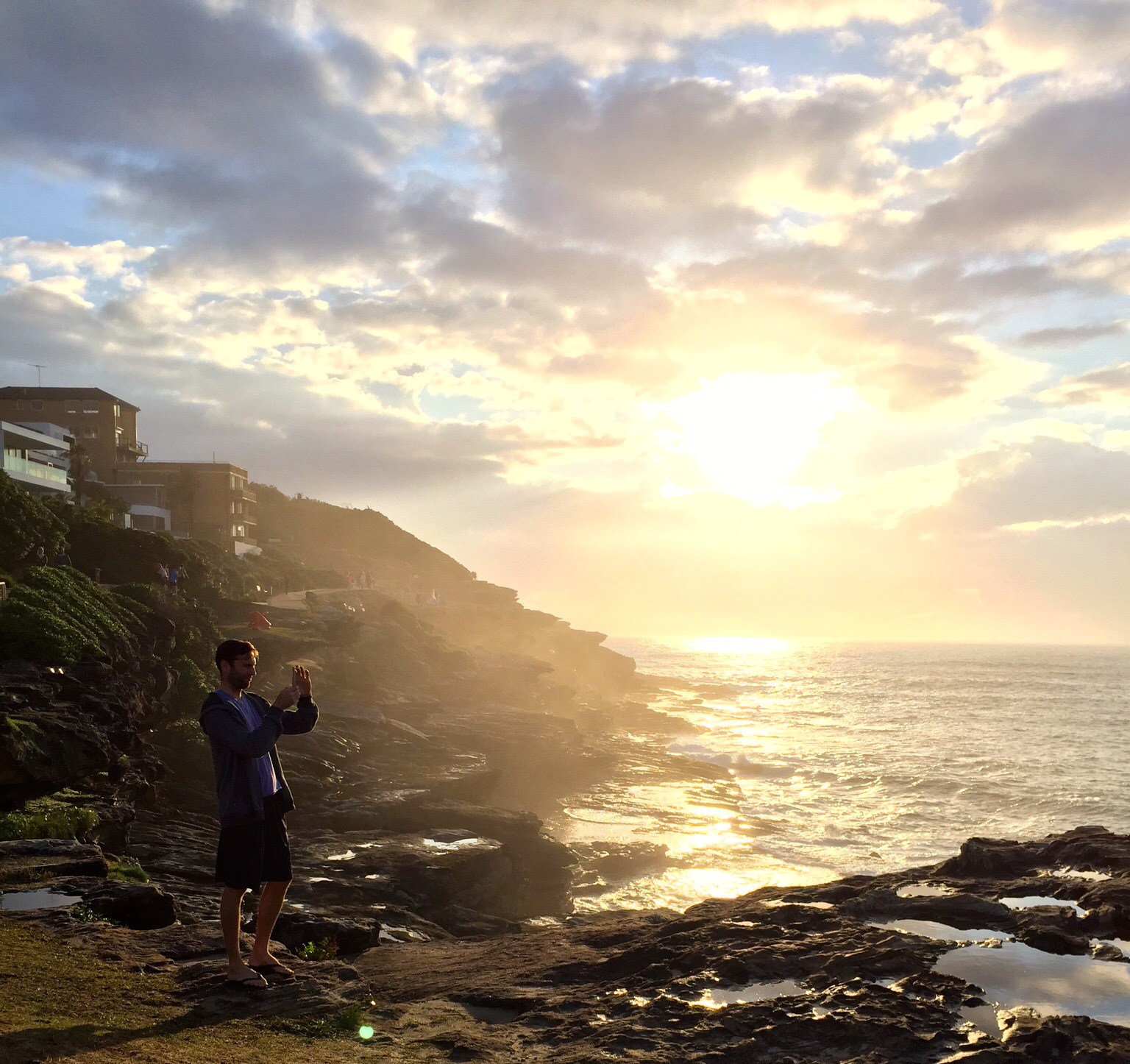The world away from the office can be a lonely place – how do you make it your remote sales paradise? After nearly 18 months on the road I decided to share how it happened for me.
“Have you got a fax machine in the car? No, but . . .”
Initially, working remotely is daunting. When detached from the routine of a regular commute and set hours, the working day becomes a free for all, packed with opportunity. For some people this could be spending extra time with their children, dropping them off at school or watching after school sports and activities. For other remote workers, the lifestyle can free more time to pursue personal interests, working on that startup idea, or giving up time to play sports, get in shape etc.
For me, my initial foray into remote life meant none of this. It meant more sleep. A lot more sleep. And I subconsciously stuck a finger up at routine as well. I’ll work when I want to work. And I’ll sleep more.
At first, this was a lot of fun. I combined my laziness with a blossoming love of travel, making my way from Australia through the Philippines and Vietnam, taking advantage of irregular work hours, sleep, and some exhilarating new activities.

Over time this lifestyle, as great as it sounds, becomes unsustainable. Why? As a creature that, without knowing it, craved routine, I was quickly getting out of shape and losing my drive. Despite some truly life changing experiences, my ambition was taking a back seat. Routine is very important – I’ll come back to it later. Equally as important is your bank balance.
Fast forward a year and I’ve got the remote work lifestyle into a routine that I love. The purpose of this article is to try and save you some time getting to this point. Especially, if you’re like me, and programmed to take the easy option – Wait But Why author Tim Urban refers to this as the “Instant Gratification Monkey” – it’s why you’ll spend countless hours on YouTube cycling through videos of The Office, Karl Pilkington and dancing monkeys when you should be doing sales outreach or writing blog posts!
Taking the easy option isn’t always a negative in my opinion. Sales people that take the easy option seem far more likely to be those that consume all sorts of articles about cheating the sales process and utilising technology to automate outreach. It’s part of the fun that growth hacking represents.
Some people, at this point might ask, how do I get to a remote sales position, you’re getting a bit ahead of yourself here Steve! Valid point, and possibly an article I could approach if enough people wanted to read about that, but the short answer goes:
- Know that your existing employer is open to remote working and engineer this situation to your benefit – start with a request to work one day a week from home, get an injury that allows you to be on a laptop but not drive to the office, the list goes on. I still harp on about Tim Ferriss’s Four Hour Work Week but for good reason, it is to remote lifestyle engineering what Pumping Iron is to bodybuilding -the blueprint, and there are plenty of other books that have followed this lead.
- Know that, although your employer is not open to remote working, you can outlast them as everyone will be working remotely one day – yes, this is a war of attrition and probably not the smart choice! Many employers will come round to the idea of remote working as they see that technology allows for it, grown up people can work without them peering over their shoulders (unless they need more sleep), and office space is an expensive overhead if your business is competing against a bright tech startup!
- Final option – quit and engineer a role for yourself or apply to a role that is remote from day one
Ok, so with that tangent out of the picture, let’s take a dive into the key areas that make up, in my mind, a successful remote sales existence:
- Research and Planning
- Routine
- Technology
Research and Planning
This is huge. Donald Trump Huge.
Did we need a compilation of Donald Trump to illustrate my point? Yes.
Research and planning can be divided into two segments. Research for work and research for pleasure. After all, the remote life (and life in general) should be pleasurable and, for that to happen successfully, some planning will be required.
Often, travel planning is focused around pleasure so how do you integrate and get sales benefits from your travel?
- Meetup is a great way to network in a new city. This could be finding social pursuits where you can make friends through to networking events for people in your field or potential customers. If I’m trying to find tech startups in a new city then Meetup will usually host a range of events I can attend allowing me to meet people, learn more about a new location and generate sales conversations.
- Coffee Shops – Ah, caffeine. The drug of choice for most “digital nomads”. No open space attracts remote workers like well made coffee, brewed by a barista sporting an apron, tattoos and some form of piercing. Hipster coffee is taking the world by storm and I’ve found superb coffee in cities from Ho Chi Minh to Berlin, Barcelona and Venice Beach, California. If you want to network into these crowds, the coffee shop is a great way.
- Conferences – every city has a hub around industries. What is your industry? Does the city you’re travelling to have a conference on the horizon? Even better if you can convince your employer to fund the travel there and the event ticket!
- LinkedIn – I feel like I should be on a retainer from LinkedIn but, it’s so simple. Search for professionals, potential clients, and people in the same line of work through LinkedIn who are based in your city/location. Setup coffee meetings and spend some time away from your laptop. Perhaps we need a Tinder for business people? Perhaps there already is and I just don’t know about it!?
There’s another major benefit to be gleaned from travel. You’ll remember how, if you’ve ever hired someone, you’ll have a candidate who recently took a year out to travel and discover themselves.
It sounds cliche but travel truly makes you appreciate other cultures. You understand why people think, act and talk the way they do. Plus you’ll have a ton of instant stories to recall about a city or experience you had in that person’s country. As a result of my travel I keep an eye on popular politics in the Philippines, I watch the progress of renewable energy in South Australia and I try to avoid Brexit and Trump (by posting a Trump video in this article, very smart). It’s easy to silo yourself but there’s a huge(sorry, I’m doing it again) world out there, full of variety and experience that will make you better at your job!
Jokes aside, these experiences will also help with an interview process. If I’m recruiting a sales team, I want people that can relate to others, who understand the world around them, and can manage their own time effectively – watching over people is no fun and it can easily create a negative working culture.
Routine
This is the major pain point of my remote existence. Just when I think I have a handle on my morning alarm, a workout routine and a regular shower pattern, the Instant Gratification Monkey gets me and I’m tossed back into a whirlpool of jet lag, bad meals and wormholes of YouTube videos. It’s taken some time to manage transitions into new locations, something you’ll get used to if you move around regularly. What advice could I give? Drink lots of water, pack healthy snacks and keep stretching!
You need routine. I tend to settle into a pattern of two work rounds during the day. This helps me negotiate client timezones and potentially catch people at more opportune times to get feedback and make meaningful sales progress.
In the morning, I’ll try and get three to four hours work in. Every article will tell you this is bad but I will set the day up from my laptop whilst in bed. Then, when I do get up I’ll usually work through until about 2pm, have some lunch and head out. My afternoons are usually location dependent and could be beach time, sightseeing, shopping, running errands or getting a workout done.
Then I’ll head back, eat dinner and work for a few more hours before bed. There are a few of reasons I like this:
- Who wants to work 8 hours in a row? Especially when it’s sunny outside!
- Timezones – I can be across multiple time zones for speaking with clients by splitting my day this way (and I’ve often done calls at 3/4/5am when required). I am thankful that I can be remote so I have no apprehension at doing calls when it is convenient for my clients
- Contact strategy – There are plenty of studies that show effective times to get hold of potential clients, I like the split as it gives me more options to automate and get hold of people that I want to speak to or message
- Productivity – Perhaps this should be first but I’m way more productive this way. I’m more energetic for both of my work sessions and this is important with sales. Plus, if I’m behind on work I can sandwich sometime in the afternoon to make sure I’m on top of everything. Plus, I’m often on calls with clients at very random hours so it’s nice to act like an adult sometimes.
Technology
There are two aspects to how I work remotely, software and hardware.
On the hardware side, I travel with my MacBook, iPhone and Bose Headphones (a game changer on noisy aeroplanes and coffee shops and the best money you’ll spend!).
The software and sites I use to do my work are far more vast. Following feedback from my last article, I came to realise that every sales role is different. Obvious right? Well, every salesperson will need a different set of software to be successful in their field.
Most of my work and experience is B2B orientated. I try to automate where I can without losing the personal touch. It’s important to remain genuine. I’m also a big fan of marketing myself or my company towards a niche. This allows me to learn about a particular vertical, create content and maintain focus. I can position myself well within a niche and work across a smaller network or location to drive sales. Identifying a niche could be down to looking at your own experience, the experiences your company has in a given field or just looking at growth areas and trying to align with these.
Another very useful piece of feedback that came from the last article is the need to continually evolve this process (thanks Jimmy Clem, Phil Young & Wanda Dopierala). There was once a time when AskJeeves (now Ask.com) was the preferred question and search engine. Now it’s Google and Quora. Technology evolves at a rapid rate and so do we. Otherwise opportunities could be missed. The reverse to this is spreading yourself across too many platforms. For B2B I tend to steer clear of social tools like Instagram because I can be more successful with clients via LinkedIn. But, there could be a day when Instagram becomes really relevant for a certain type of B2B.
It’s a similar story with Facebook. Many business professionals believe that having a good LinkedIn profile is all they need. What they don’t realise is that many people trying to connect with them will use Facebook. What they also fail to realise, is that C-Level execs will often turn to Facebook to ask questions from their communities around new services or products their superiors have tasked them to research. I’ve identified and converted sales this way.
Conclusion
After nearly 18 months, I’m on top of the remote life and although I’m doing less cliff jumps and motorbike tours, I love the blend of work and pleasure. Exploring a new beach, town, or city whilst also earning a living is the way forward for me!
Thanks to the few thousand people who read my last post and those that shared and commented. If anyone has a question, or topic around remote sales they’d like me to dive into, I’d love to have your feedback.
You can read my other articles here.



